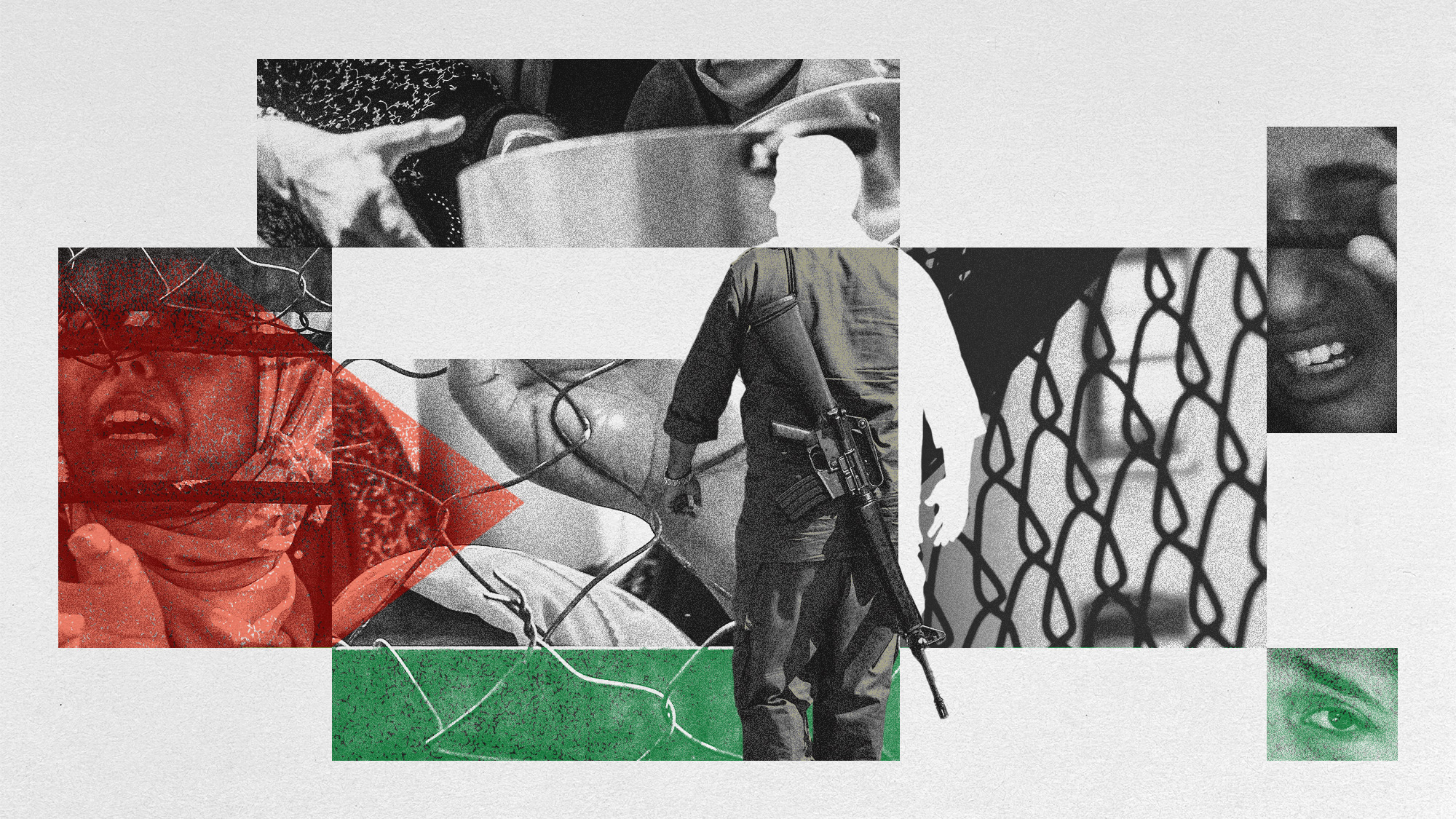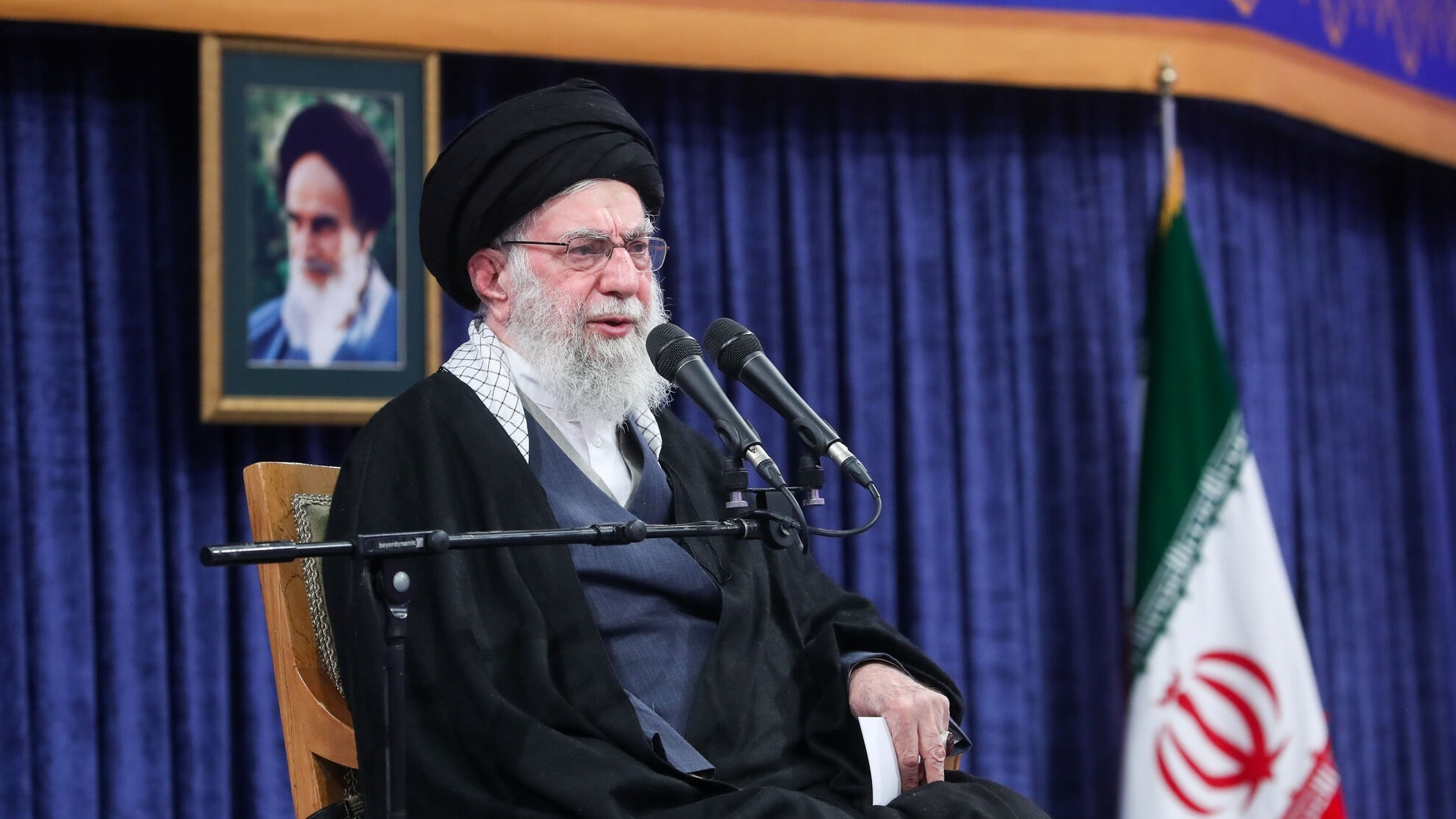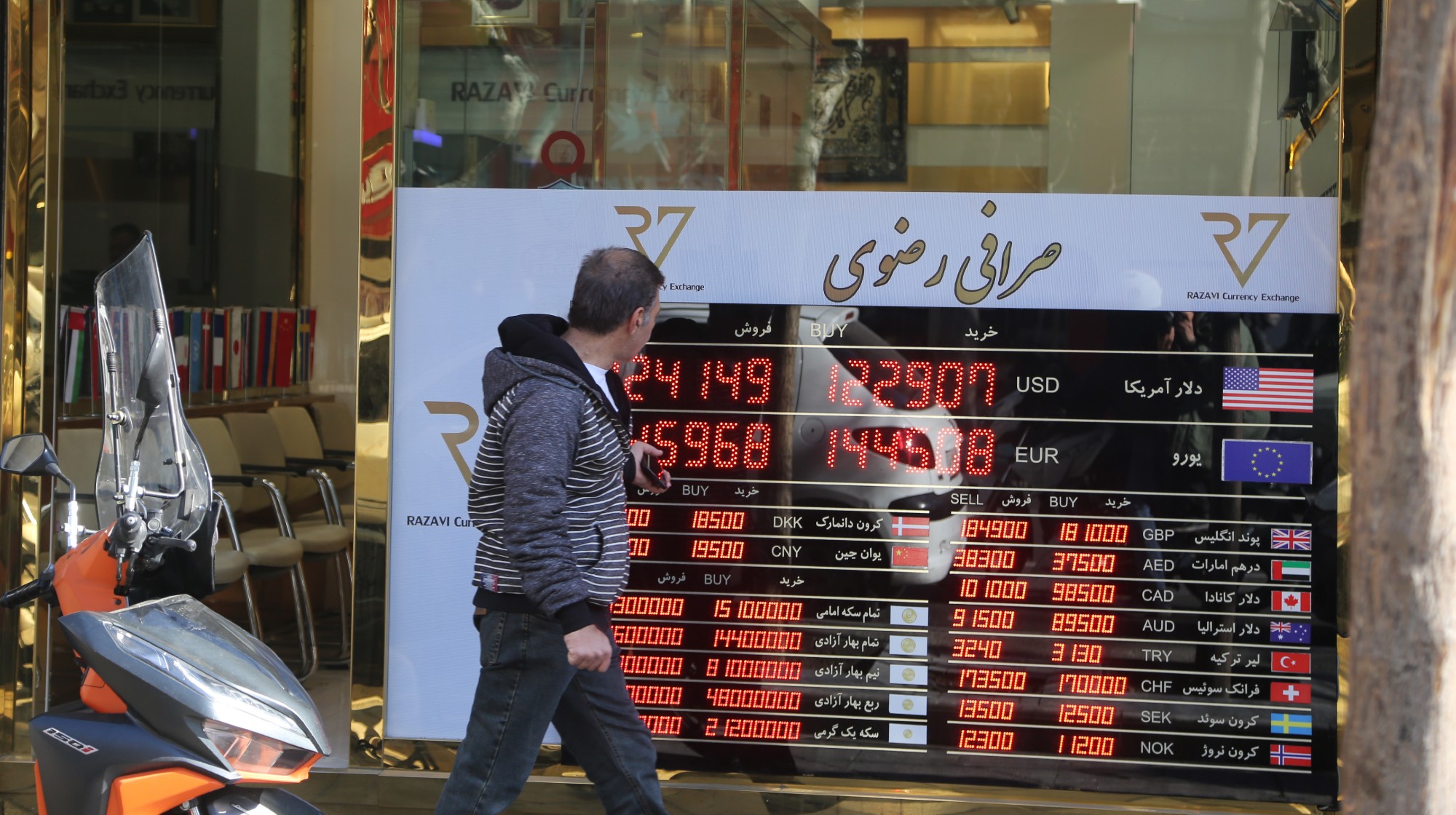The armed clan allied with Israel in Gaza
Self-styled 'Popular Forces' has been denounced by its Bedouin tribe and Hamas for 'collaborating' with Israelis

A free daily email with the biggest news stories of the day – and the best features from TheWeek.com
You are now subscribed
Your newsletter sign-up was successful
An armed group within a Bedouin tribe has emerged as a powerful – and highly controversial – supporter of Israel in its war against Hamas and its aid blockade on Gaza.
Israeli officials admitted they were supporting a clan, led by the tribesman Yasser Abu Shabab, after a former minister revealed Israel had transferred weapons to "a group of criminals and felons".
But international humanitarian groups and Palestinian sources have accused the group of "looting aid trucks in the war-torn territory", said France24 – and Israel of allowing it to do so. Shabab is the leader of a "criminal gang" in the Rafah area of southern Gaza, according to the European Council on Foreign Relations think tank.
The Week
Escape your echo chamber. Get the facts behind the news, plus analysis from multiple perspectives.

Sign up for The Week's Free Newsletters
From our morning news briefing to a weekly Good News Newsletter, get the best of The Week delivered directly to your inbox.
From our morning news briefing to a weekly Good News Newsletter, get the best of The Week delivered directly to your inbox.
The 'Popular Forces'
Clans and tribes have "strong influence in Gaza" and some have "long been armed to protect their group's interests", said The Washington Post. Others have "morphed into gangs involved in smuggling drugs or running protection rackets". Hamas "clamped down" on such groups after taking control of the Strip. But Israel's bombardment has weakened Hamas and gangs have "regained freedom to act".
Shabab's "self-styled militia" went public in May, claiming it is "guarding" new food distribution centres in Gaza, including those run by the US-backed Gaza Humanitarian Foundation. It calls itself the "Popular Forces" (formerly the "Anti-Terrorism Unit").
Shabab, "reportedly a well-connected figure in Rafah", is linked to the "powerful" Bedouin Hamashah clan, said The New Arab. His militia is said to have "evolved from a loosely organised criminal group into a Salafi-jihadist group" inspired by Islamic State. Palestinians have accused it of "spreading lawlessness under the guise of fighting Hamas". Some tribal alliances have "expelled" the group for "collaborating" with the Israeli army.
The former defence minister and current Knesset member Avigdor Lieberman revealed Israel's involvement with the group last week, claiming that Benjamin Netanyahu had been directing the government to arm "a group of criminals and felons". He warned that "ultimately, these weapons will be turned against us".
A free daily email with the biggest news stories of the day – and the best features from TheWeek.com
Shabab served time in a Gaza prison and his clan chiefs denounced him as an Israeli "collaborator and a gangster", Palestinian affairs expert Michael Milshtein told AFP. Either the Shabak (Israeli security agency) or the military seemingly "thought it was a wonderful idea" to turn this militia "into a proxy, to give them weapons and money and shelter" from army operations, Milshtein said.
Israel's decision to arm such a group was "a fantasy, not something that you can really describe as a strategy", he added. "I really hope it will not end with catastrophe."
'The only alternative' to UN aid
Israel has "activated clans in Gaza that oppose Hamas", Netanyahu said in a video posted to social media earlier this month in response to Lieberman's claims. "What is bad about that?"
The Israeli prime minister did not provide any details on how the government was backing the group. Israel's army spokesperson confirmed that the military supported arming local militias in Gaza, but also "remained tight-lipped on the details", said France24.
Rather than to counter Hamas, Israel is using the gang to present the Gaza Humanitarian Foundation as "the only alternative" to UN food supplies, Muhammad Shehada, political analyst at the European Council on Foreign Relations, told The Washington Post. "It's Israel's way of telling the UN, if you want to try to bring aid into Gaza, good luck with this," he said. "We will force you to go through a road where everything you brought will be looted."
Hamas has strongly condemned the group, saying there was evidence of "clear coordination between these looting gangs, collaborators with the occupation [Israel], and the enemy army itself in the looting of aid and the fabrication of humanitarian crises". Hamas said the group had "chosen betrayal and theft as their path", and called on civilians to oppose them.
The Popular Forces wrote on Facebook that it had "never been, and will never be, a tool of the occupation". "Our weapons are simple, outdated, and came through the support of our own people," the statement said.
Harriet Marsden is a senior staff writer and podcast panellist for The Week, covering world news and writing the weekly Global Digest newsletter. Before joining the site in 2023, she was a freelance journalist for seven years, working for The Guardian, The Times and The Independent among others, and regularly appearing on radio shows. In 2021, she was awarded the “journalist-at-large” fellowship by the Local Trust charity, and spent a year travelling independently to some of England’s most deprived areas to write about community activism. She has a master’s in international journalism from City University, and has also worked in Bolivia, Colombia and Spain.
-
 6 of the world’s most accessible destinations
6 of the world’s most accessible destinationsThe Week Recommends Experience all of Berlin, Singapore and Sydney
-
 How the FCC’s ‘equal time’ rule works
How the FCC’s ‘equal time’ rule worksIn the Spotlight The law is at the heart of the Colbert-CBS conflict
-
 What is the endgame in the DHS shutdown?
What is the endgame in the DHS shutdown?Today’s Big Question Democrats want to rein in ICE’s immigration crackdown
-
 Will increasing tensions with Iran boil over into war?
Will increasing tensions with Iran boil over into war?Today’s Big Question President Donald Trump has recently been threatening the country
-
 Iran and US prepare to meet after skirmishes
Iran and US prepare to meet after skirmishesSpeed Read The incident comes amid heightened tensions in the Middle East
-
 Israel retrieves final hostage’s body from Gaza
Israel retrieves final hostage’s body from GazaSpeed Read The 24-year-old police officer was killed during the initial Hamas attack
-
 Trump, Iran trade threats as protest deaths rise
Trump, Iran trade threats as protest deaths riseSpeed Read The death toll in Iran has surpassed 500
-
 Iran cuts internet as protests escalate
Iran cuts internet as protests escalateSpeed Reada Government buildings across the country have been set on fire
-
 Iran’s government rocked by protests
Iran’s government rocked by protestsSpeed Read The death toll from protests sparked by the collapse of Iran’s currency has reached at least 19
-
 Why is Iran facing its biggest protests in years?
Why is Iran facing its biggest protests in years?TODAY’S BIG QUESTION Iranians are taking to the streets as a growing movement of civic unrest threatens a fragile stability
-
 What will happen in 2026? Predictions and events
What will happen in 2026? Predictions and eventsIn Depth The new year could bring peace in Ukraine or war in Venezuela, as Donald Trump prepares to host a highly politicised World Cup and Nasa returns to the Moon